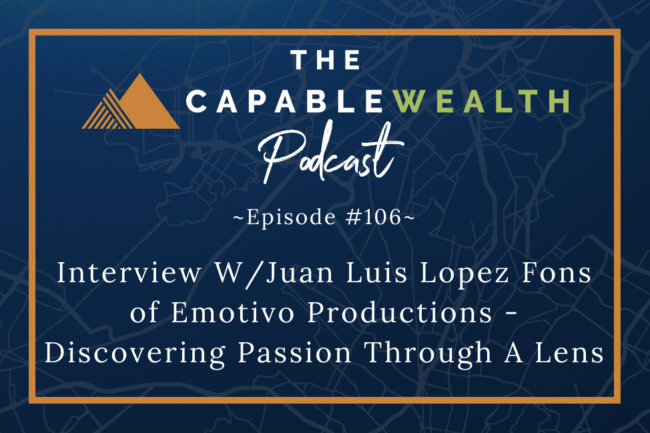You read that title correctly – Curt Schilling lost $50 Million dollars!
But how? And Why? And more importantly, how can you avoid something like this happening to you?
Let’s dig in…
DON’T GET OFF TRACK ABOUT WHAT IS IMPORTANT TO YOU
I’m passionate about chasing your dreams. Even though this is a blog focused on helping people build wealth, I’ve written several times about the importance of understanding your personal “Why” before you set out on your wealth-building journey. If not, you could end up making decisions that don’t align with what truly matters to you.
I’ve even written about how you could potentially become “too wealthy” if you aren’t careful…
The concept behind this idea is that if you’ve amassed enough wealth to live out your dream life, any additional time spent building more wealth is time wasted NOT living out your dreams.
Unless, of course, the thing you are doing to build wealth PERFECTLY aligns with what you want to do throughout your dream life. But that is a truly small portion of the population.
Recently, I got to thinking about some examples of when people “overshot” their wealth needs and it back-fired on them.
LOSING FOCUS OF YOUR FINANCIAL GOALS
One clear example that came to mind is Curt Schilling.
He is a former Major League Baseball pitcher, former video game developer, and former baseball color analyst.
Throughout his career in the MLB, he made a name for himself as a top-competitor who wasn’t afraid to speak his mind.
In 2009, he retired with an estimated net-worth of around $50 million dollars. And like many athletes, he began to transition to life post-sports, getting involved in numerous business ventures.
The venture that will forever haunt Curt is a video game development company he founded called 38 Studios.
The quick synopsis is that the company started off strong, and grew to employ almost 400 people at its peak. Its first game launched in 2012 and had solid sales. But within 3 months after that launch, the company laid off its entire staff and filed for bankruptcy, due to having overextended itself with the development of its next game.
Now, this isn’t a unique story, by any means. Countless companies launch and fail each year. But what struck me as eye-opening is the personal financial risk Curt Schilling took in the venture.
Throughout the venture, he invested his ENTIRE net worth. And when all was said and done, he was left with nearly nothing.
Now, he is forced to work hard to rebuild his family’s finances as an analyst and political commentator.
I’m not saying these are horrible jobs. But the fact that he had absolute financial freedom for the rest of his life, and now is forced to work in these positions is a testament to poor decision-making.
[How To Find Your Financial Freedom Number]
Why couldn’t he have invested $40 million and not all $50 million? What kept him going to the bitter end?
LESSONS FROM A FINANCIAL RUIN
When I think about this story there are two main lessons I think about.
1 – The old adage “Don’t put all of your eggs in one basket”
This one seems pretty obvious.
Why did he have to invest his family’s ENTIRE fortune into this business? Were there no signs earlier on that could have prompted him to stop before he was fully committed?
I’m all about being passionate and committed to an endeavor, but when you are getting involved in a particular investment or business, there are so many risks and variables to factor in, it’s almost impossible to consider them all. For this reason, there is always some level of risk that you could lose all, or at least a substantial amount of your investment. Why set yourself up for potential financial ruin?
2 – Don’t Lose Sight Of Your Real Goals
The less obvious lesson is that you should always understand why you are doing whatever it is that you are doing.
Did Curt truly have a passion for video games? Was it his lifelong dream to build this company? Or was it just a venture that he got sold on and thought he could turn his $50 million into hundreds of millions, or even billions!?
Maybe he was blinded by greed. Or maybe his ego caused him to keep pushing when the signs were pointing to the company going bankrupt.
Without speaking to him directly, it’s impossible to say. But you can be sure that he and his wife weren’t planning on starting over with nothing.
The point is this – if in those years leading up to the bankruptcy he and his wife were asking themselves what is their true goal with their wealth, it might have steered them away from putting themselves at such a financial risk.
ASK YOURSELF WHY ARE YOU DOING “THIS”
As you begin your wealth-building journey (or continue on it), make sure you understand exactly what it is you are working toward. Check in at regular intervals to make sure your actions are aligning with what your true goals are.
Because, if you don’t, the best-case scenario is that you could end up overshooting your mark and work for much longer than necessary.
And in the worst-case scenario, not knowing what you are targeting can end up causing you to make poor decisions that could hurt you and your loved ones enormously.
Work hard on building your wealth, but make sure you are doing it for the right reasons, and heading in the right direction.
Capably Yours,
















